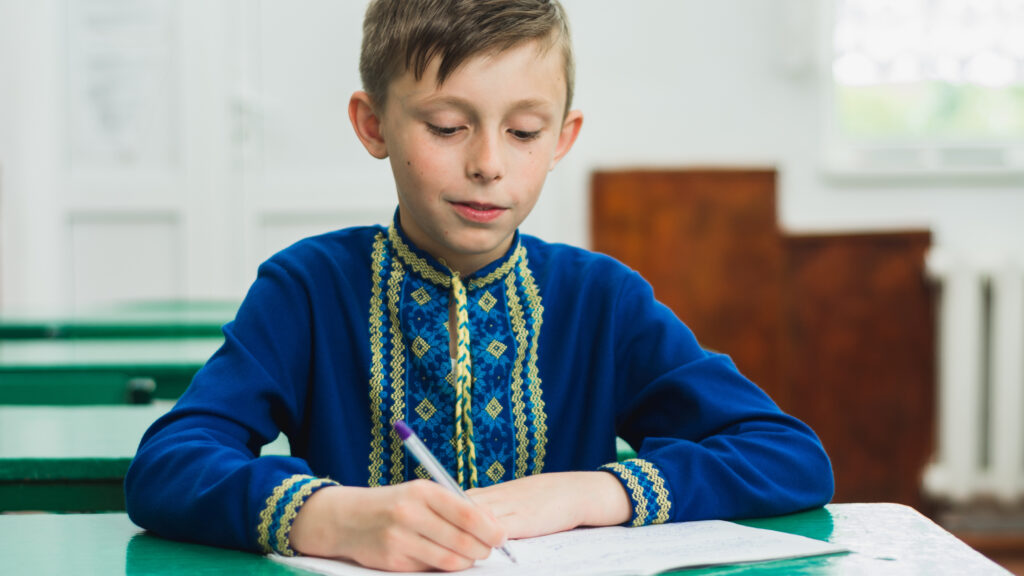Brussels, 04 July 2022
ECSWE publishes guidelines for supporting Ukrainian refugee students

The guidelines give inspiration and concrete advice to hosting schools on how a safe and welcoming environment can be provided for refugee students to continue with their education.
A multi-layered approach to offering psycho-social support
Many arriving families rely on schools’ capacity to provide psycho-social help for arriving refugee students while schools may often be overwhelmed with this task. The guidelines therefore introduce a multi-layered approach to deal with trauma introducing specific roles for (1) the hosting school as a whole, (2) individual teachers with special training and (3) external professional therapists. The paper also highlights typical symptoms of trauma that all the involved teachers should be aware of.
Navigating the obstacles of integration in the hosting school
The dual task of following the Ukrainian curriculum remotely while settling into the hosting school and its curriculum causes a mental overload for many Ukrainian refugee students. In the light of the uncertainty of a return home in the near future, the guidelines highlight the importance of refugee students maintaining a connection to Ukrainian culture and language, while encouraging them to integrate more fully into the hosting school community.
Four practical ways of supporting refugee students in school
In the guidelines, the role of the school in supporting refugee students is then further defined in terms of four key factors: 1. addressing communication challenges by means of translations into the first or second language and by dedicated language classes in the language of the hosting country, 2. ensuring social inclusion by means of peer support, parental involvement and anti bullying-strategies, 3. the promotion of a healthy school climate, and 4. dedicated through art based work.
A question? Please don’t hesitate to contact us!




